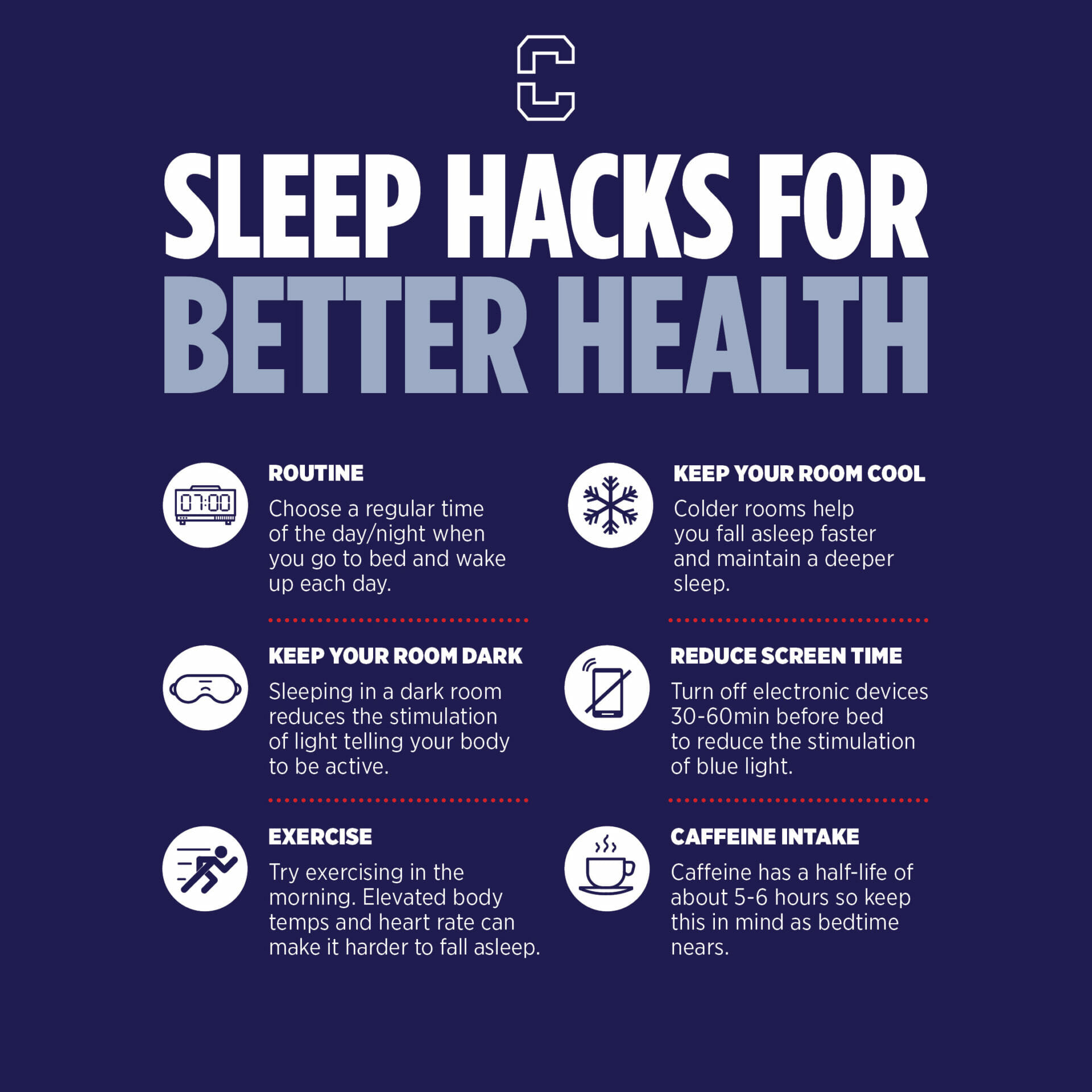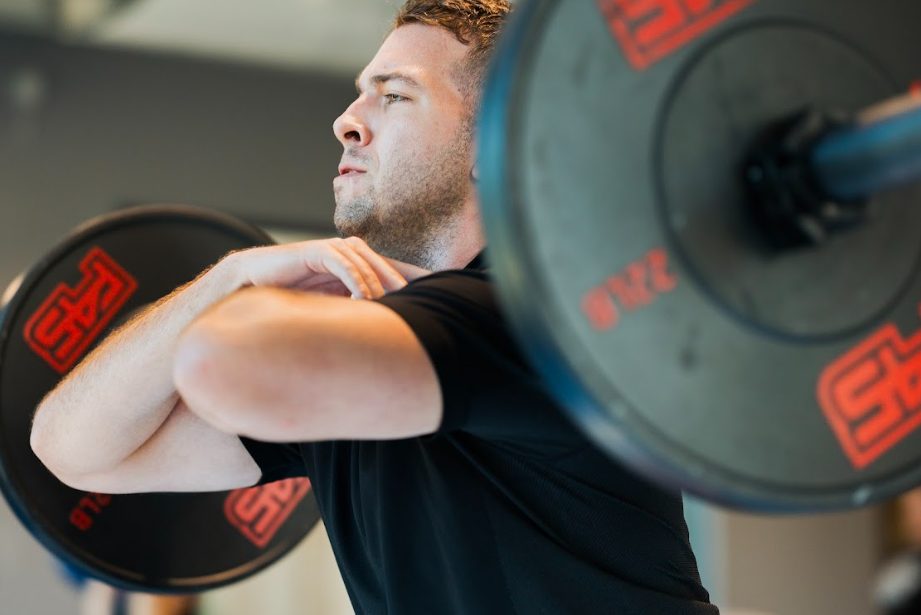When it comes to locking in the physical and mental benefits of your workout routine, sleep’s importance can’t be overstated. The health benefits of sleep are enormous – and sleep helps your body heal, grow and recover.
Getting enough sleep is one of the most simple and useful changes the trainers here at F45 recommend to our members. Everyone is slightly different with how much sleep they need, but the general recommendation is that adults get a least seven hours per night¹. However, you may be wondering how to get adequate sleep in the first place – especially when you have to balance that alongside trying to keep up with exercise, work, and the demands of family and social life.

What is the benefit of sleep?
Sleep is a superpower that everyone has access to, providing a range of benefits that help with maintaining your general health and building a sustainable fitness routine. Ahead, we’ll unpack our top four sleep benefits to look forward to the next time your head hits the pillow.
Performance
When it comes to performance, sleep benefits both your physical and cognitive ability. With sufficient sleep, your muscles have more strength and work faster². You’ll also have more energy, focus, and will be able to think with clarity. Altogether, sleep helps you smash your workouts and prevent injury.
Recovery
Recovery is one of the key health benefits of sleep. Deep sleep facilitates the release of growth hormones, enhancing your ability to transport proteins to your muscles – which, in turn, helps prevent and treat delayed onset muscle soreness (DOMS). In other words, eat plenty of lean protein – and get lots of sleep!
Weight loss
Getting plenty of sleep makes use of your body’s connection between hormones and weight loss. Quality sleep boosts your metabolism – meaning your body stores less food as fat, which boosts your lean body mass. Also, sleep benefits appetite hormone regulation³, decreasing your consumption of high–calorie foods.
Mood and wellbeing
What’s awesome about the relationship between exercise and sleep is that it’s mutually beneficial. Working out reduces stress and helps you sleep; sleeping reduces stress and helps you exercise. Sleep benefits your emotional regulation, too – making you less irritable and angry, and more excited and passionate.
F45’s top 7 sleep hacks for better, longer, and more satisfying sleep
A good night’s sleep is key to building and maintaining muscle and feeling happy. To receive the full rewards of sleep, though you’ll need to be able to get to sleep in the first place. Falling asleep is different for everyone you may fall asleep straightaway, or you may need a bit of time and a few specific conditions. To support your sleeping schedule, try following our seven hacks for sleep.
1. Set your bedroom
There are four different aspects of a bedroom that can influence your health benefits of sleep: temperature, light, noise, and cleanliness.
To make your bedroom an easy place to sleep in, try:
- Establishing a cool temperature (it doesn’t need to be cool the entire night to fall asleep) using air conditioning, opening windows, or fans.
- Minimizing light sources by using quality window shades and covering electronics.
- Reducing unwanted noises by turning off devices and using earplugs.
2. Reduce caffeine intake
Avoid having any form of caffeine at least six hours before you go to bed4. This sleep hack usually means drinking your daily coffee or green tea in the morning, but avoiding it late into the afternoon.
Once you’ve established a consistent sleep schedule, you may find you’re less likely to consume caffeine, as caffeine is often taken for temporary mental alertness or energy due to a lack of sleep in the first place.
3. Progressive muscle relaxation (PMR)
Many hacks for sleep are about reducing the tension you may feel when you go to sleep, usually from an active mind. PMR helps to refocus your mind on the present and relax your body. To try PMR, follow these five steps:
- Lie comfortably on your back.
- Take a few slow deep breaths: taking air in through your nose and exhaling it through your mouth.
- Beginning with your toes, focus on curling your toes and feet: holding the movement for a few seconds and then releasing. Let your feet relax into the bed.
- Repeat this with the rest of your muscles, progressing slowly up the body: your calves, thighs, glutes, back, shoulders, arms, hands, and head.
- Refocus on your breathing if your thoughts distract you.
4. Exercise during the day
Regular exercise improves sleep quality4 because, quite simply, it makes you tired. So, performing any F45 workout or recovery session each day can help you get to sleep every night. (That’s not to say you should neglect rest days, though – they’re important too!) The only thing you’ll want to avoid is exercising right before you plan to sleep, as your body needs time to cool down and relax.
To enjoy the benefits of sleep after an evening workout, be sure to give yourself an hour to unwind afterwards.
5. Sleep music
Music can reduce feelings of stress and help you feel relaxed and calm. Sleep music is slow paced and doesn’t involve any lyrics (otherwise, your mind will focus on the words and fail to slow down). What you want to listen to is your preference, but popular audio hacks for sleep include nature sounds, white or brown noise, ambient sounds, and soothing instrumentals.
6. Follow a bedtime routine
Establishing and sticking to a nighttime routine helps you fall asleep, as it signals to your mind that you’re going to bed soon.
Your bedtime routine should kick in somewhere between 30 to 60 minutes before bed – and can involve the sleep hacks you’ve found most useful here.
Here’s an example of how your bedtime routine could look:
- Turn off your devices.
- Turn on the air conditioning to cool your bedroom down.
- Turn on and adjust your dimmable night lamp.
- Close your curtains or draw the blinds.
- Take a shower.
- Brush teeth.
- Pour yourself a glass of water.
- Get in bed.
7. No screens in bed
One of the biggest blockers to you accessing the many health benefits of sleep is your use of electronics. So, avoid using your phone or laptop at least an hour before you head to bed. These devices emit blue light, which can reduce your production of melatonin and stop you from feeling sleepy6.
Focusing on the health benefits of sleep is one of the easiest, quickest ways you can improve your workout results. Now, learn more about the advantages of fitness with our guide to the benefits of aerobic exercise for your health.
1 https://pmc.ncbi.nlm.nih.gov/articles/PMC4434546/
2 https://pmc.ncbi.nlm.nih.gov/articles/PMC9960533/
3 https://www.health.harvard.edu/blog/snooze-more-eat-less-sleep-deprivation-may-hamper-weight-control-202204042718/
4 https://pmc.ncbi.nlm.nih.gov/articles/PMC3805807/
5 https://pmc.ncbi.nlm.nih.gov/articles/PMC10503965/
6 https://pubmed.ncbi.nlm.nih.gov/31191118/














